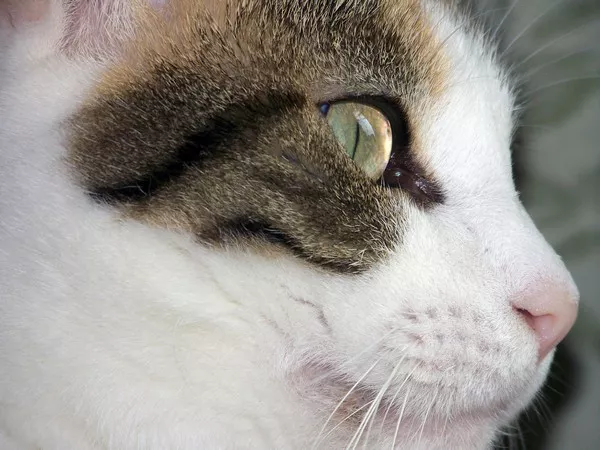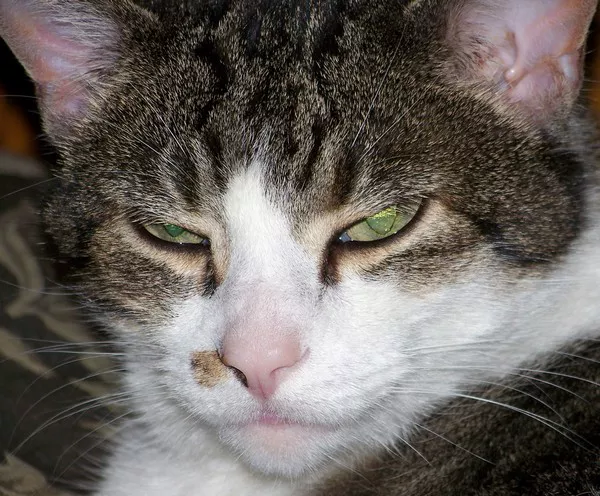The Japanese Bobtail is a unique and endearing breed known for its distinctive physical features and charming personality. This breed possesses a short, stubby tail resembling a pom-pom, which is one of its most recognizable traits. The Japanese Bobtail typically has a lean, muscular build with long legs, giving it an elegant appearance. Their large, expressive eyes can be various colors, and they often have a silky coat that comes in a variety of colors and patterns, including the traditional “mi-ke” tricolor pattern.
Characteristics and Personality
Japanese Bobtails are known for their playful, social, and intelligent nature. They are affectionate cats that tend to form strong bonds with their human companions. These cats are often described as dog-like due to their tendency to follow their owners around the house, engage in play, and even fetch. Their friendly disposition makes them excellent companions for families, singles, and seniors alike.
The personality traits of the Japanese Bobtail can impact their dietary needs. Their active and playful nature requires a diet that supports high energy levels. Additionally, their social behavior may lead them to be more prone to overeating or begging for food, making it essential for owners to manage their feeding habits carefully.
Nutritional Requirements
To ensure optimal health and well-being, understanding the nutritional requirements of Japanese Bobtails is crucial. Just like any other cat breed, they require a balanced diet rich in essential nutrients.
Proteins: Proteins are vital for the growth, maintenance, and repair of tissues. Cats are obligate carnivores, meaning they require protein from animal sources. A diet high in protein (30-40% of their daily intake) is necessary for muscle development and overall health.
Fats: Healthy fats are essential for energy, skin health, and the absorption of certain vitamins. Fats should make up about 20-25% of a Japanese Bobtail’s diet, with omega-3 and omega-6 fatty acids being particularly beneficial.
Carbohydrates: While cats do not require carbohydrates in the same way humans do, they can benefit from some carbs for energy. However, the carbohydrate content in their diet should be limited, ideally making up no more than 10-15%.
Vitamins and Minerals: Essential vitamins (such as A, D, E, and B-complex) and minerals (like calcium, phosphorus, and magnesium) are necessary for various bodily functions, including immune response, bone health, and overall vitality.
Dietary Needs by Age
Kittens: Kittens have unique nutritional requirements that differ from those of adult cats. They need a diet high in calories and protein to support their rapid growth and development. Special kitten formulas are designed to meet these needs and typically contain about 40-50% protein and 20-30% fat.
Adults: Adult Japanese Bobtails require a balanced diet to maintain their energy levels and overall health. A protein-rich diet with moderate fat content is ideal. Generally, adult cats should have a protein intake of about 30-40%.
Seniors: Senior cats may require adjustments to their diet as their metabolism slows and they become less active. A lower-calorie diet with added joint support (like glucosamine) can help maintain their health. It’s important to ensure they receive adequate hydration, as senior cats are more prone to kidney issues.
Recommended Diet Types for Japanese Bobtails
Choosing the right type of food for your Japanese Bobtail is crucial for their health and happiness.
1. Dry Kibble
Pros:
Convenient and easy to store.
Can help reduce plaque and tartar buildup on teeth.
Cons:
May contain fillers and lower-quality ingredients.
Some cats may not drink enough water, leading to dehydration.
2. Wet Food
Pros:
Higher moisture content helps with hydration.
Often more palatable for picky eaters.
Typically contains higher-quality protein sources.
Cons:
Can be more expensive than dry food.
Requires refrigeration after opening.
3. Raw Diet
Pros:
Mimics a cat’s natural diet, rich in protein and healthy fats.
Can improve coat condition and energy levels.
Cons:
Requires careful handling and preparation to avoid contamination.
May not provide complete nutrition if not properly balanced.
Key Ingredients to Look For
Selecting high-quality ingredients in cat food is essential for the health of your Japanese Bobtail.
Real meat: Look for named meat sources (like chicken, turkey, or fish) as the first ingredient.
Whole grains or vegetables: If carbohydrates are included, they should come from whole sources, such as brown rice or sweet potatoes.
Added nutrients: Look for foods fortified with essential vitamins and minerals.
Ingredients to Avoid
By-products: Avoid foods that list meat by-products as the primary protein source.
Fillers: Ingredients like corn, soy, and wheat provide little nutritional value.
Artificial additives: Steer clear of food with artificial colors, flavors, or preservatives.
Portion Sizes and Feeding Frequency
Determining the right portion sizes and feeding frequency is vital to maintaining your Japanese Bobtail’s health.
Portion Sizes
Portion sizes should be based on the cat’s age, weight, and activity level. As a general guideline:
Kittens: 3-4 meals per day, based on their high energy needs.
Adults: 1-2 meals per day, depending on their activity level.
Seniors: Adjust portions based on activity and health; consider smaller, more frequent meals.
Feeding Frequency
Feeding frequency can vary among individual cats. While some owners prefer multiple small meals throughout the day, others may opt for two larger meals. Establishing a routine can help regulate their eating habits and prevent obesity.
Common Dietary Concerns
Understanding potential dietary issues is crucial for the health of your Japanese Bobtail.
Obesity: Overfeeding or a diet too high in calories can lead to obesity, which may result in diabetes and joint issues.
Dental Health: Poor dental care can lead to gum disease and tooth decay, particularly in cats that primarily eat wet food.
Allergies: Some cats may develop food allergies or sensitivities, which can manifest as skin issues or gastrointestinal upset.
Signs of Dietary Problems
- Weight loss or gain
- Changes in coat condition (dullness, excessive shedding)
- Vomiting or diarrhea
- Changes in appetite or behavior
Homemade Diet Options
Many cat owners consider preparing homemade meals for their pets. While this can be a viable option, it requires careful planning to ensure nutritional balance.
When preparing homemade meals for Japanese Bobtails, include:
High-quality protein sources: Chicken, turkey, or fish.
Healthy fats: Fish oil or flaxseed oil for omega fatty acids.
Vegetables: Carrots, peas, or pumpkin for fiber (in moderation).
Cautionary Notes
Homemade diets must be well-balanced and include all essential nutrients. Consulting with a veterinarian or pet nutritionist is advisable to avoid nutritional deficiencies.
Role of Wet Food: Hydration is a critical aspect of a cat’s diet. Cats often do not drink enough water, especially if fed a dry diet. Ensuring adequate hydration is crucial for kidney health and overall well-being. Wet food can significantly contribute to a cat’s daily water intake. Cats fed primarily dry food may benefit from having a water fountain or multiple water bowls to encourage drinking.
Feeding Habits and Behavior: Feeding habits can have a significant impact on a Japanese Bobtail’s behavior and overall well-being. Establishing a positive feeding routine can help prevent behavioral issues. Providing regular feeding times and using food puzzles can stimulate mental engagement and slow down eating.
Consulting a Veterinarian: When it comes to cat feeding, consulting a veterinarian is essential for personalized dietary advice. A veterinarian can help determine the best diet based on your Japanese Bobtail’s specific health conditions, age, and lifestyle. Regular check-ups can ensure your cat’s nutritional needs are being met and adjusted as necessary. Encouraging regular communication with your veterinarian regarding your cat’s diet can prevent potential health issues and promote a long, happy life for your Japanese Bobtail.
Conclusion
Feeding a Japanese Bobtail requires careful consideration of their unique characteristics, nutritional needs, and dietary preferences. By understanding their essential nutrients, selecting high-quality ingredients, and establishing a suitable feeding routine, owners can help ensure their furry companions lead healthy, fulfilling lives. Consulting a veterinarian can further tailor dietary plans to meet individual needs, providing peace of mind for cat owners committed to their pet’s well-being.
Related Topics



























